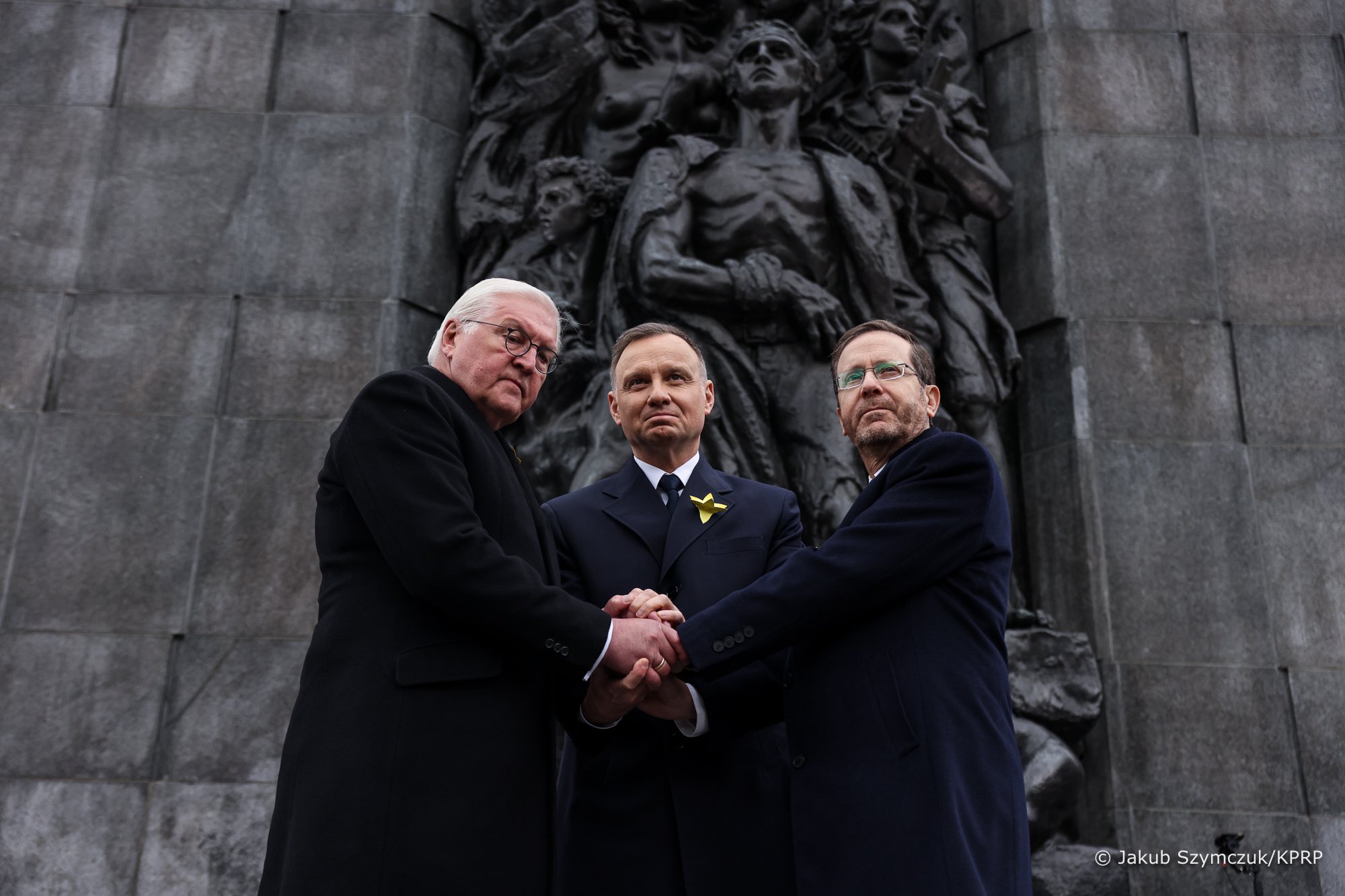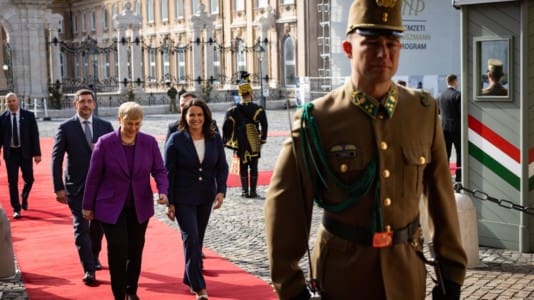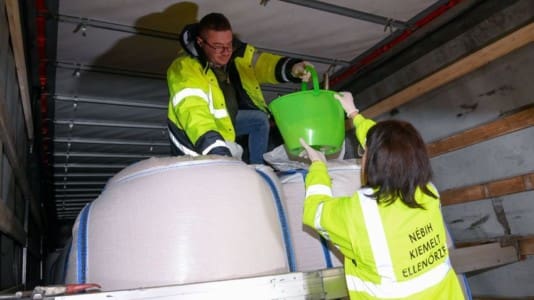Polish President Andrzej Duda, upon hosting the Israeli and German presidents in Warsaw during the commemoration of the 80th anniversary of the Warsaw Ghetto Uprising, said that all should bow their heads before the heroes of the ghetto who fought for their dignity and against hatred.
“They will always remain as an example of courage and heroism, and symbols of courage and dignity who fought like lions,” he told attendees.
President Duda added that they were Jewish and Polish heroes. He recalled that Poland in the inter-war period had been a multinational state and that Warsaw had, after New York, the largest congregation of Jews with 350,000 Jews living in the city. Many Jews had lived in Poland for almost 1,000 years, but World War II and the Holocaust changed that, the Polish president stated.
In his speech, Israeli President Isaac Herzog thanked Duda for his “colossal efforts and commitment to the labor of remembrance and commemoration, including right here, in this place.”
“We must remember: There is nothing postmodern or relativistic about Holocaust remembrance. Absolute evil existed, in the form of the Nazis and their accomplices, and absolute good existed, in the form of the victims and the rebels, from every nation.
“In passing this heritage down to posterity, it must reflect this indisputable axiom; no ifs, no buts,” Herzog added, later describing the uprising as an “emblem of heroism during humanity’s darkest hour.”
Polish historian of Jewish origin Marian Turski called for unity against antisemitism, the falsification of history, the denial of human rights, and aggression against neighbors. He recalled that he had been saved by Russian soldiers but could not remain silent about what Russia was doing in Ukraine, arguing that it reminded him of the horrors of World War II. He said that human life and freedom were the most important values and warned against hatred.
German President Frank-Walter Steinmeier admitted that as a German he felt ashamed of the crimes his country had committed. He said he was grateful, honored, and humbled by the fact that he was the first German head of state to be allowed to participate in the commemoration at the site of the ghetto.
Frank-Walter Steinmeier stressed that Germany was conscious of its responsibility for the crimes committed. He said that not enough had been done to hold those responsible to account; he asked for forgiveness for what had been done and said he was committed to cultivating the miracle of reconciliation that had taken place. He concluded by saying that the lesson of history is that such an atrocity must never happen again. “Never again should we endure racism, extreme nationalism and aggression against nations.”
The Warsaw Ghetto Uprising began on April 19, 1943. It was an act of desperation, as there was no chance of victory. Nevertheless, it surprised the Germans and became a symbol of resistance against German oppression. It was the first urban uprising in German-occupied territories during World War II and lasted for nearly a month, ending on May 16, 1943. It is regarded as a milestone in Jewish history, as it helped to reawaken the desire for a Jewish state to fight for the survival of Jewish people.





